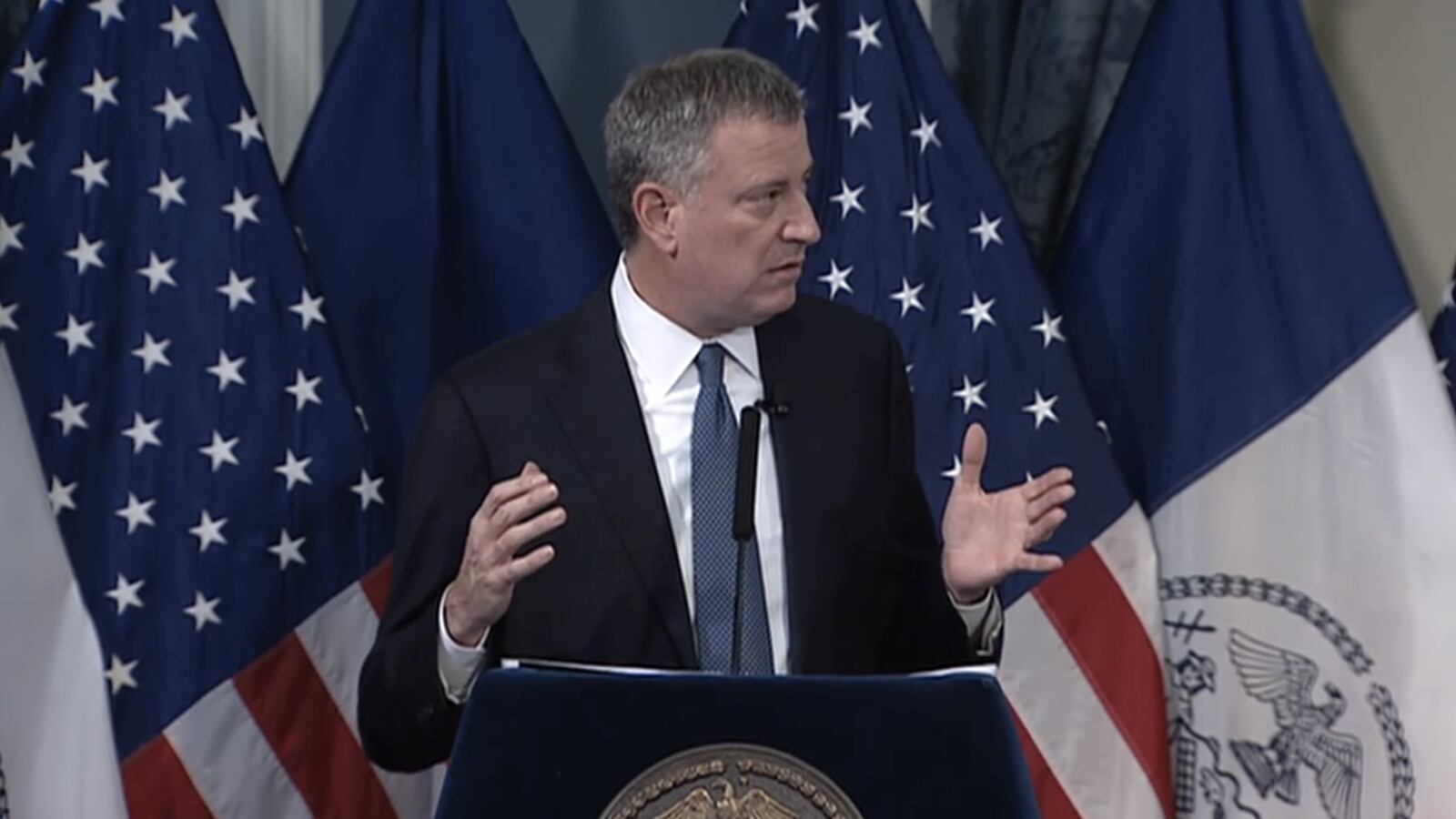Mayor Bill de Blasio said Monday that the education department’s budget next year should go toward continuing to expand the city’s pre-kindergarten and after-school programs while also funding some new initiatives, such as more teacher leadership positions and extra help for struggling readers.
The 2016 budget includes $340 million to continue de Blasio’s signature push to make full-day pre-K available to all four-year-olds, and $190 million to grow middle school after-school programs. De Blasio said the city will be “able to get more done” with that money since both programs will have fewer start-up costs in their second year.
The administration’s proposed budget sets aside $4.9 million annually through 2019 to pay for hundreds of teachers to take on leadership roles in exchange for extra pay, a plan laid out in last year’s new teachers contract. The funding would allow 594 educators to become “master” teachers, who lead study groups and coach their colleagues, or “model” teachers, who open up their classrooms for colleagues to observe.
The budget plan also adds in $655,000 next year to train teachers to support students with dyslexia, an annual expense that would increase over time. In order to speed up the process when parents request hearings because they believe their children are not receiving their mandated special-education services, the plan also pays for extra workers to respond to those hearing requests and sets up a new office to conduct the hearings.
While de Blasio described how the city would put its education funding to use, he also called on the state to send the city more money, as it was required to by the settlement of a landmark 1993 lawsuit. The state cut back its payments to the city during the recession and the tepid recovery, but de Blasio said today’s improved economy means the state should meet its financial obligations.
“Now we’re in a different reality,” he said, adding that he would raise the issue when he testifies before the state legislature this month. Chancellor Carmen Fariña made a similar request to lawmakers in Albany last week.
The department’s operating budget next year is estimated to reach $21.6 billion, an increase of about $700 million from the this year’s estimated total. Some $10.2 billion of next year’s total will come from the city, with the the state and federal governments providing the rest.
Below are some other highlights from the education portion of the mayor’s proposed $77.7 billion city budget for 2016, which still must be negotiated with the City Council:
- college tuition help for classroom aides;
- a new phone service in over 80 languages for parents who are not fluent in English, and a public-awareness campaign to advertise the phone line;
- 12 new varsity girls sports teams per year through 2019;
- and more guidance counselors and social workers to work with students who are serving out-of-school suspensions.


